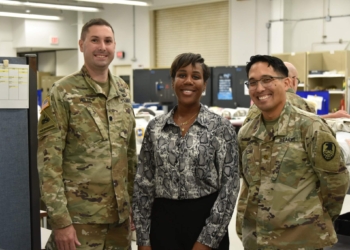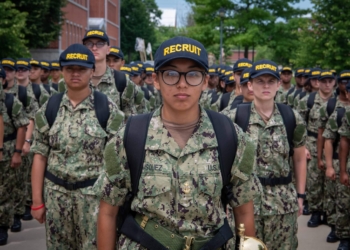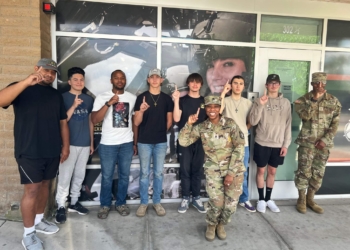As Navy Cmdr. Tarus Chatman boarded his flight from boot camp to Naval Aircrew Candidate School, he tried to keep his cool. It was 1996 and the first time he’d ever stepped foot on an aircraft.
The future helicopter pilot and flight instructor grew up in rural Tennessee. Until then, he’d only seen and heard planes soar above him into clouds. Strapped into one while it sped through the air thousands of feet high sent his heart racing.
“I just kind of played like I wasn’t terrorized by it,” he laughed, recalling the trip. “I remember getting off the plane, and my ears were kind of stopped up, and I was all worried about it. Here I am today, a few thousand hours into aircraft flying and instructing.”
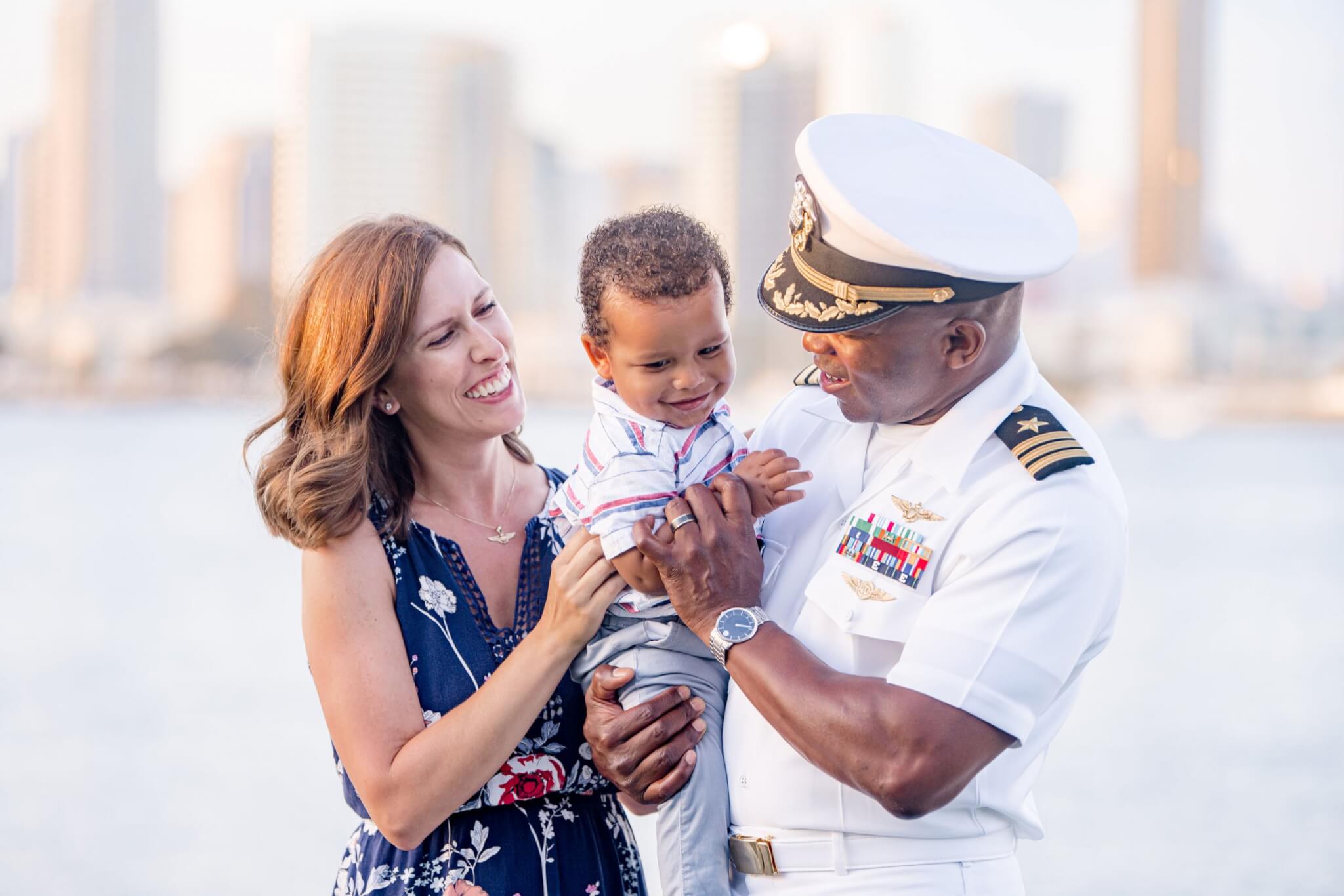
His path into the military came as an unexpected twist of fate. Unlike many who join the military at a young age, he didn’t have family or friends in the service. In high school, a childhood friend casually mentioned his plans to serve in the Navy after basketball practice. Chatman’s initial shock quickly turned into curiosity. Soon, he was in front of the school recruiter, who directed him to the nearest Marine recruiting office to sign papers.
But something wasn’t quite right. As Chatman waited several minutes to speak with a representative, his excitement faltered. He nervously scanned the pictures of Marines on the walls and decided to bolt. On his way back to his car, the nearby Navy recruitment sign caught his eye. Recalling his friend’s plans to join the branch, he decided to stop in.
“I couldn’t even get the door open, and the guy was like, ‘Hey, how are you doing? How can I help you?” the Navy commander said.
He instantly became hooked and convinced his parents to sign his paperwork before turning 18. At boot camp, he found out he was selected to be an aircrewman. The opportunity seemed surreal.
“It worked out for the good, for my own destiny, for what I should be doing in life,” said Chatman. He added that he had “no idea” what he was getting into when he first enlisted.
After aircrew school, his first role was as an anti-submarine warfare systems operator with the Patrol Squadron NINE “Golden Eagles” at Kaneohe Bay, Hawaii. His career goals reshaped when a friend mentioned their desire to become a naval officer. He’d never realized programs existed that make it possible to become an officer.
From enlisted to officer
When Chatman discovered the Broadened Opportunity for Officers Selection and Training Program, he went for it. He was accepted into the program and graduated with a Bachelor of Science in finance at the University of Memphis. He commissioned in 2004.
He served his first operational flying tour with the Helicopter Anti-Submarine Squadron Light FOUR EIGHT in Florida. Since then, he’s been promoted to commander and serves as the detachment two officer in charge for the Tactical Air Control Squadron 11. Throughout his career, he’s deployed to the Eastern Pacific, Red Sea and the Horn of Africa.
He admits there were a lot of uncomfortable moments and grueling deployments but feels the sacrifices were well worth the career he’s built.
“I was open to not only staying where I am but open to where I could go in the military,” he said, pressing the importance of setting goals and going after them. “Don’t be idle-minded when it comes to your career and what you want to accomplish.”
Chatman pressed that getting outside help is integral to success in a military career. He advises junior enlisted members who dream of becoming officers to seek mentors to help with the competitive application process for advancement programs.
“Whatever job you have, be very good at that job and then apply,” he said. “If you’re doing well, people will support you in your endeavors. Don’t just take one rejection. If you don’t get selected the first time, reapply. If it’s something you really want, you will get it. You just have to stay diligent if you don’t get it the first time.”
New opportunities to advance
While the specific BOOST program Chatman was part of has been modified through the years, there are similar opportunities for enlisted members to become naval officers today.
One example is the Seaman to Admiral STA-21 Commissioning Program. STA-21 keeps participants on active duty at their current enlisted pay grade while they receive up to $10,000 per year to cover tuition, books and fees for college. The program is competitive, and the applicant’s fleet performance history and academic and leadership potential determine who is selected for the program.
Officer Candidate Sean Hall just became part of the STA-21 program. His father and grandfathers served in the military, which inspired him to enlist in the Navy in 2014. He started as a machinist’s mate nuclear, and his own growing family with three children motivated him to try to become an officer. He’s enrolled at the University of Wisconsin and aims to become a surface warfare officer after graduating within three years.
He still remembers the rush of finding out he made it into the competitive STA-21 program.
“I was really excited at first because it is a hard program to get into,” he said. “Once you find out you got selected, it’s like, ‘Wow, this is going to be real!’ You think about all of the changes that are going to happen.
Hall added that the application process required a lot of legwork and patience.
“Once you get picked up, you hit the ground running,” he said, describing college enrollment as a blur.
Hall hopes this serves as an example to inspire his kids to go after their dreams.
“To show my kids that you don’t have to settle, you can still push yourself to do more with your life,” Hall said.
More than a Navy commander career
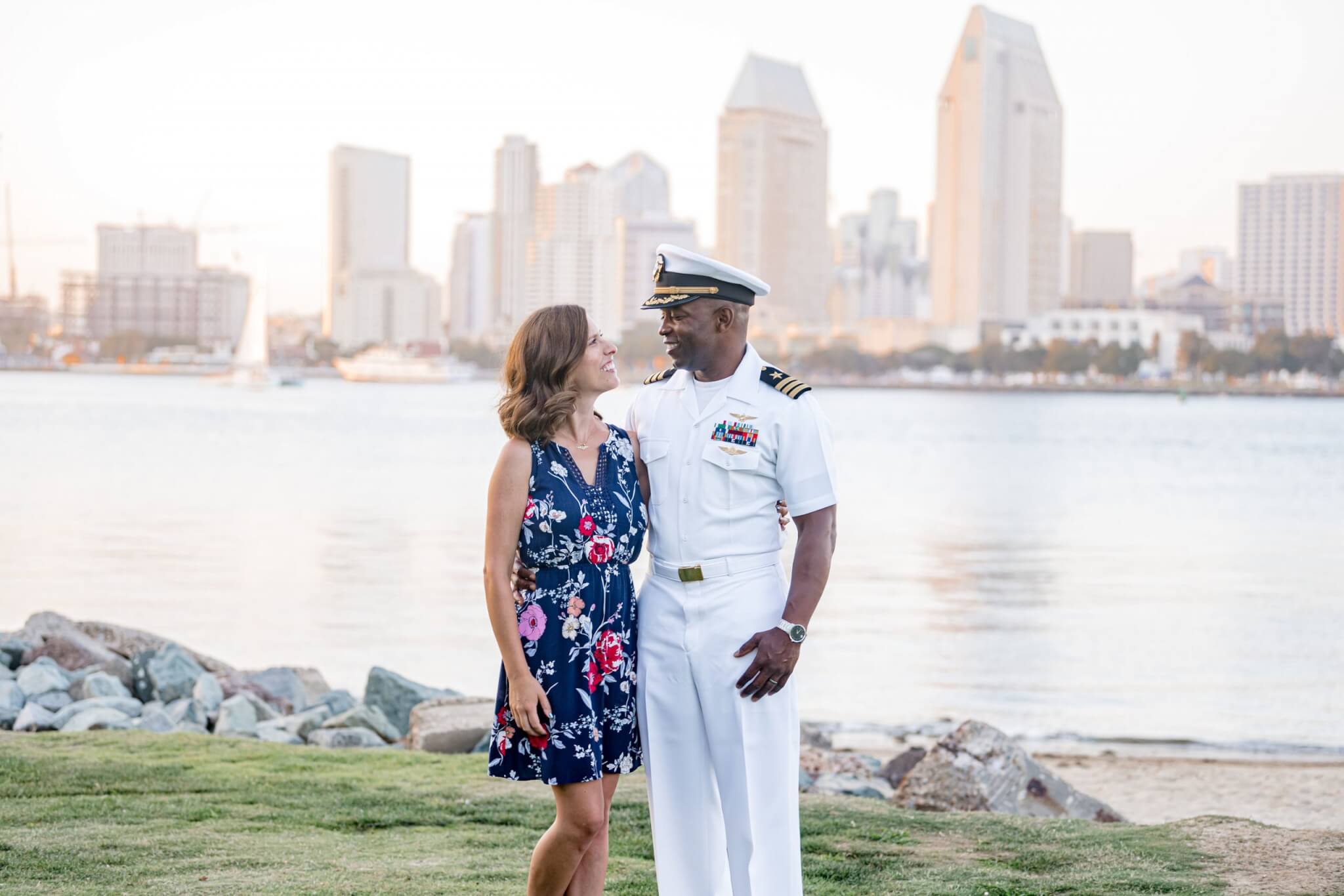
Family is also a big motivator for Chatman.
He met his wife, Haley, while stationed in Monterey, California. He fondly remembers their first date. They went out for sushi and inadvertently wore almost identical outfits. Three years later, they married. A year ago, they welcomed their first son. Chatman deployed for seven months when his son, Zeb, was just one month old. He praises his wife for making the difficult situation as smooth as possible.
“Knowing that she had it under control and getting that good, positive feedback from her daily was very important,” Chatman said. “I appreciate what she brings to the table as a military spouse and mother and trying to deal with establishing her career. I’ve just been in awe watching her as a mother.”
Twenty-six years into his naval career, Chatman and his family are preparing for their first overseas tour in England. He’ll be the regional director for Science and Technology at the Office of Naval Research Global (ONR-G) in London.
He’s eager to see what comes next in his whirlwind of a career. He pressed that the best part of his story is it could have happened to nearly anyone.
“The military is an adventure,” he said. “Take advantage of the opportunities that it gives you.”

















